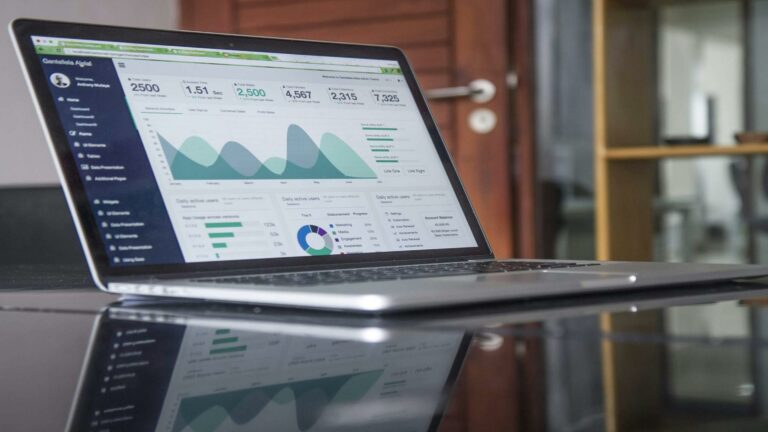Optimize Website Page Titles: The Ultimate Guide to Boosting Your SEO
In the competitive world of digital marketing, knowing how to optimize website page titles is crucial for improving your search engine rankings and attracting more visitors to your site. At Web Design London, we understand the importance of well-crafted page titles and their impact on your overall SEO strategy. In this comprehensive guide, we’ll walk you through everything you need to know about optimizing your website’s page titles for maximum impact.
Why Optimizing Website Page Titles Matters
The Importance of Optimizing Website Page Titles
Before diving into the how-to, let’s explore why it’s crucial to optimize website page titles:
- First impressions count: Page titles are often the first thing users see in search results, making them a critical factor in attracting potential visitors.
- SEO boost: Well-optimized titles can significantly improve your search engine rankings by incorporating relevant keywords and signaling content relevance to search engines.
- Increased click-through rates: Compelling titles encourage users to click on your links, potentially improving your overall CTR and driving more traffic to your site.
- Better user experience: Clear, descriptive titles help users understand your content quickly, improving navigation and reducing bounce rates.
- Brand recognition: Consistently well-crafted titles can enhance your brand’s visibility and recognition in search results.
By focusing on these aspects, you can create page titles that not only appeal to search engines but also resonate with your target audience, ultimately driving more organic traffic and improving your website’s overall performance.
10 Expert Tips to Optimize Website Page Titles
Follow these proven strategies to create effective, SEO-friendly page titles:
Common Mistakes to Avoid When Optimizing Page Titles
Common Pitfalls When Optimizing Website Page Titles
As you work to optimize website page titles, it’s crucial to avoid these common mistakes that can hinder your SEO efforts:
- Duplicate titles: Using the same title for multiple pages confuses search engines and dilutes your ranking potential. Every page on your site should have a unique title tag to help search engines distinguish the value and relevance of each page.
- Excessive length: Creating overly long titles that get cut off in search results can lead to lost information and reduced click-through rates. Aim for title tags between 50-60 characters to ensure they display properly in SERPs.
- Keyword neglect: Failing to include relevant keywords in your titles misses a crucial opportunity for optimization. Incorporate your primary keyword or a long-tail variation early in the title, but avoid keyword stuffing.
- Vague or misleading content: Writing vague or clickbait-style titles that don’t accurately reflect the content can harm user experience and increase bounce rates. Ensure your titles are informative and provide clear value to users.
- Outdated information: Forgetting to update titles when content changes can lead to inconsistencies and poor user experience. Regularly review and update your title tags to ensure they remain relevant and accurate.
By avoiding these pitfalls and following best practices for title tag optimization, you can significantly improve your website’s visibility and click-through rates in search engine results pages.
Tools to Help You Optimize Website Page Titles
At Web Design London, we use a variety of tools to help our clients optimize website page titles effectively:
- Google Search Console: Provides insights into how your titles perform in search results
- SEMrush: Offers keyword research and competitor analysis to inform your title optimization strategy
- Yoast SEO: A WordPress plugin that helps you optimize titles and meta descriptions
- CoSchedule Headline Analyzer: Scores your titles based on their potential effectiveness
- Moz Title Tag Preview Tool: Shows how your title will appear in search results
The Impact of Mobile on Page Title Optimization
With the increasing prevalence of mobile search, it’s crucial to consider how your titles appear on smaller screens when you optimize website page titles. Here are some mobile-specific considerations:
- Keep titles even shorter for mobile displays
- Front-load important information to ensure it’s visible on smaller screens
- Use mobile-friendly language that’s easy to read on the go
- Consider voice search optimization, as many mobile users rely on voice commands
How Page Titles Affect Click-Through Rates
How Optimized Page Titles Impact Click-Through Rates
The effectiveness of your efforts to optimize website page titles can be measured in part by your click-through rates (CTR). A well-optimized title can significantly increase your CTR, leading to more traffic and potential conversions. Crafting clear and concise titles is essential for both users and search engines to understand the purpose of your page.
Here’s how titles impact CTR:
- Relevance: Titles that closely match search queries are more likely to be clicked. Incorporating target keywords early in the title can improve relevance and visibility.
- Emotional appeal: Titles that evoke curiosity or excitement can drive higher CTRs. Using compelling language and addressing user pain points can make your title stand out.
- Clarity: Clear, concise titles that set accurate expectations tend to perform better. Avoid keyword stuffing and focus on describing the page content accurately.
- Uniqueness: Titles that stand out from competitors can attract more clicks. Analyze the SERP to see how you can differentiate your title while maintaining relevance.
To maximize CTR, aim for titles between 50-60 characters to prevent truncation in search results. Optimizing title tag length ensures your full message is visible to users, increasing the likelihood of clicks. Remember to make each title unique across your website to avoid confusion and potential cannibalization of search rankings.
Optimizing Page Titles for Different Types of Content
Optimizing Page Titles for Different Content Types
When you optimize website page titles, it’s crucial to tailor your approach based on the specific type of content. Different content formats and purposes may require unique strategies to maximize their SEO potential and user appeal. Here are some expert tips for optimizing page titles across various content types:
Blog Posts
- Include the primary keyword near the beginning of the title
- Use numbers or power words to increase click-through rates
- Consider adding the current year for timely content
Product Pages
- Include the product name and a key feature or benefit
- Add the brand name if it’s a well-known or searched-for term
- Consider including price or promotional information
Service Pages
- Clearly state the service offered and target location (if applicable)
- Highlight a unique selling proposition or benefit
- Include relevant qualifications or certifications
News Articles
- Front-load the most important or attention-grabbing information
- Include relevant keywords that users might search for
- Consider using question formats for intriguing titles
Remember, regardless of the content type, it’s essential to keep your title tags between 50-60 characters to ensure they display properly in search engine results pages (SERPs). Additionally, always make every title tag unique to avoid confusion and potential cannibalization of your own content.
By tailoring your approach to optimize website page titles based on content type, you can significantly improve your SEO performance and attract more targeted traffic to your site. Always analyze the SERP for your target keywords to understand what types of titles are performing well and how you can make yours stand out.
The Role of Page Titles in Local SEO
Optimizing Website Page Titles for Local SEO
For businesses targeting local customers, it’s crucial to optimize website page titles with local SEO in mind. Well-crafted page titles can significantly improve your visibility in local search results and attract more targeted traffic. Consider these effective strategies to enhance your local SEO through optimized page titles:
- Include location-specific keywords: Incorporate your city, region, or neighborhood into your page titles. For example, ‘London Web Design Services’ or ‘Best Coffee Shop in Brooklyn’.
- Mention nearby landmarks or neighborhoods: If your business is near a well-known location, include it in your title. For instance, ‘Dentist near Central Park’ or ‘Italian Restaurant in Soho’.
- Use local modifiers: Phrases like ‘near me’ or ‘in [City Name]’ can help capture local search intent. For example, ‘Plumber near me‘ or ‘Wedding Photographer in San Francisco’.
- Incorporate local events or seasonal terms: If relevant, include local events or seasons in your titles. For example, ‘Summer Beach Rentals in Miami’ or ‘Chicago Marathon Training Programs’.
- Optimize for mobile searches: With the increasing prevalence of mobile searches, ensure your titles are concise and readable on smaller screens. Keep your title tags between 50-60 characters for optimal display on both desktop and mobile devices.
- Include your main offerings or services: Clearly state what your business provides in the title. For instance, ‘Emergency Plumbing Services in Dallas’ or ‘Organic Vegetarian Restaurant in Portland’.
Remember, your page title is often the first impression potential customers have of your business in search results. By optimizing your title tags for local SEO, you can increase your local traffic and improve your click-through rates. Always ensure that your titles accurately reflect the content of your pages and provide value to your target audience.
Balancing SEO and User Experience in Page Titles
Balancing SEO and User Appeal in Website Page Titles
While it’s crucial to optimize website page titles for search engines, it’s equally important to create titles that appeal to human users. Striking the right balance between SEO and user-friendliness can significantly improve your click-through rates and overall search performance. Here’s how to achieve this delicate equilibrium:
- Prioritize clarity and relevance: Ensure your title accurately reflects the page content while incorporating relevant keywords naturally. Avoid keyword stuffing, as it can deter users and potentially harm your search rankings.
- Use natural language: Craft titles that resonate with your target audience by using language they understand and relate to. This approach not only improves user engagement but also aligns with search engines’ preference for natural, conversational content.
- Avoid technical jargon: Unless your niche specifically requires it, steer clear of overly technical terms that might confuse or alienate general users. Opt for clear, concise language that conveys your message effectively.
- Address user needs: Focus on crafting titles that highlight how your content solves user problems or meets their needs. This user-centric approach can improve both SEO performance and user satisfaction.
- Conduct user testing: Regularly test your titles with real users to gauge their effectiveness. This feedback can help you refine your approach and create more compelling titles over time.
Remember, the goal is to create titles that not only rank well but also entice users to click through to your content. By following these guidelines, you can develop page titles that serve both search engines and human readers effectively.
The Future of Page Title Optimization
Emerging Trends in Page Title Optimization
As search engines continue to evolve, so too must our strategies to optimize website page titles. Staying ahead of these trends is crucial for maintaining and improving your site’s visibility in search results. Here are some key developments to watch:
- Increased emphasis on user intent and context: Search engines are becoming more adept at understanding the context behind searches, making it essential to craft titles that align with user intent. This means focusing on natural language and addressing specific user needs rather than just keyword stuffing.
- Greater integration of AI and machine learning: Artificial intelligence is playing an increasingly significant role in how search engines interpret and rank content. This trend is pushing SEO professionals to create more sophisticated, context-aware titles that can be better understood by AI algorithms.
- Dynamic titles adapting to user behavior: Some platforms are experimenting with titles that change based on user behavior and preferences. This personalization can lead to higher click-through rates and improved user engagement.
- Enhanced focus on voice search optimization: With the rise of voice-activated devices, optimizing titles for voice search is becoming crucial. This often means using more conversational language and question-based formats in your titles.
- Importance of structured data: Implementing structured data can influence how your titles appear in search results, potentially leading to rich snippets that can significantly boost visibility and click-through rates.
By staying attuned to these trends and continuously refining your approach to page title optimization, you can ensure that your website remains competitive in the ever-changing landscape of search engine results pages.
How Web Design London Can Help You Optimize Your Page Titles
Optimize Your Website Page Titles for SEO Success
At Web Design London, we understand the critical role that well-optimized page titles play in boosting your website’s search engine visibility and click-through rates. Our team of SEO experts specializes in helping businesses optimize website page titles to maximize their online potential. Here’s how we can elevate your website’s performance:
- Comprehensive Website Audits: We conduct thorough analyses to identify title optimization opportunities across your entire site, ensuring no page is left behind in the quest for better rankings.
- In-depth Keyword Research: Our team utilizes advanced tools to perform keyword research and competitive analysis, uncovering the most effective terms to include in your page titles.
- Tailored Title Optimization Strategies: We craft custom strategies aligned with your specific business goals, ensuring each title is not only SEO-friendly but also compelling to your target audience.
- Performance Monitoring and Refinement: Our experts continuously track the performance of your optimized titles, making data-driven adjustments to improve click-through rates and search rankings.
- Holistic SEO Integration: We seamlessly integrate title optimization with broader SEO and content marketing strategies, creating a cohesive approach to improving your online presence.
By partnering with Web Design London, you’ll leverage our years of experience and proven track record in helping businesses enhance their online visibility. Our approach to optimizing page titles goes beyond simple keyword insertion; we focus on creating titles that are both search engine-friendly and engaging to potential visitors.
Don’t let poorly optimized titles hold your website back. Contact Web Design London today to discover how our expert title optimization services can drive more qualified traffic to your site and boost your overall SEO performance.
Conclusion: The Power of Well-Optimized Page Titles
Mastering the Art of Page Title Optimization
Learning to optimize website page titles effectively is a crucial skill in today’s digital landscape. By implementing strategic techniques, you can create compelling, SEO-friendly titles that not only attract more visitors but also improve your search engine rankings. Here are some key strategies to consider:
- Keep it concise: Aim for titles between 50-60 characters to ensure they display fully in search results. Front-load important keywords to maximize visibility.
- Incorporate relevant keywords: Include your primary keyword near the beginning of the title, but avoid keyword stuffing. Write for the user first, ensuring the title accurately represents the page content.
- Make it unique: Create distinct titles for each page to help search engines understand the unique purpose of your content and avoid duplicate issues.
- Optimize for click-throughs: Craft compelling titles that entice users to click. Use action words, numbers, or questions to spark curiosity and interest.
Remember, title optimization is an ongoing process that requires regular monitoring and refinement. Stay up-to-date with SEO best practices and be prepared to adjust your strategy as search engine algorithms evolve.
By mastering the art of page title optimization, you’ll be well on your way to improving your website’s visibility and attracting more qualified traffic. Keep experimenting with different title formats and analyzing their performance to find what works best for your audience and industry.













